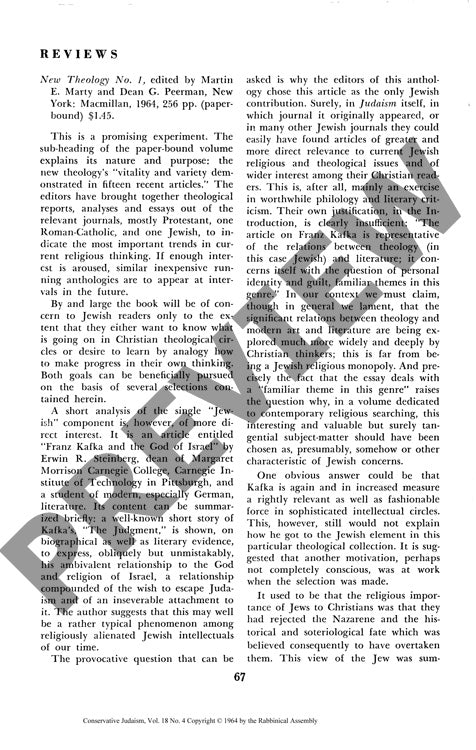Reviews
Couldn't load pickup availability
When Christian theologians chose Franz Kafka as the sole Jewish voice in their 1964 anthology "New Theology No. 1," they unconsciously perpetuated centuries-old narratives about Jewish spiritual alienation. Through close textual analysis of the anthology's contents and editorial decisions, particularly Erwin R. Steinberg's essay on Kafka's relationship to Judaism, a troubling pattern emerges. Rather than including contemporary Jewish theological perspectives-which were readily available in Jewish journals of the period-editors Martin E. Marty and Dean G. Peerman selected literary criticism that portrayed Jews as rejecting their own traditions. This modern reframing of the historical "faithless-perfidious" characterization of Jews demonstrates how deeply rooted prejudices continue to shape interfaith dialogue, even as religious communities outwardly embrace pluralism and ecumenical respect. Kafka, positioned as the archetypal alienated Jewish intellectual, becomes a convenient modern vessel for traditional Christian theological assumptions about Jewish spiritual defection. The findings reveal how unconscious bias can undermine genuine theological exchange between faiths, even in seemingly progressive scholarly contexts.

More Information
-
Physical Description
-
Publication Information
Published 1964
ISBN
-
Publication Credits

